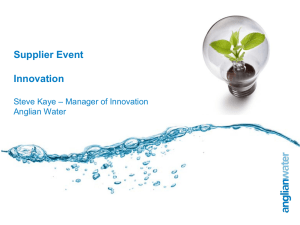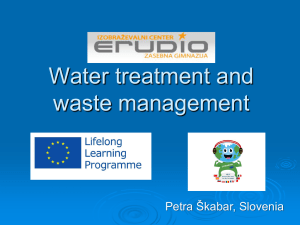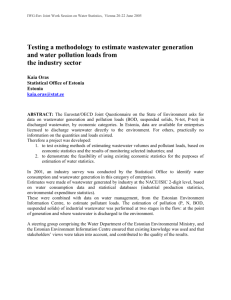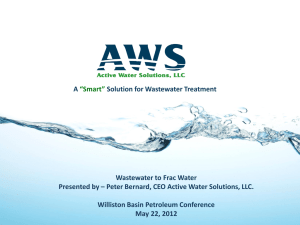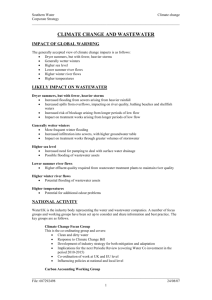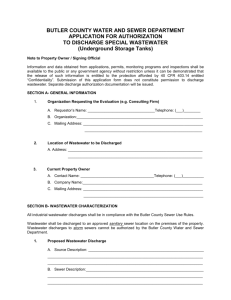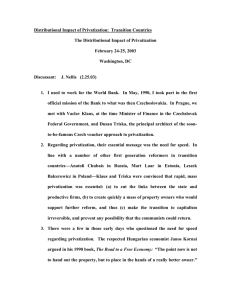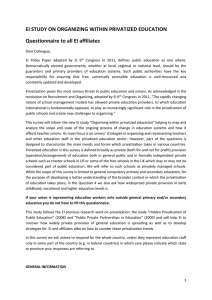7.Water-Wastewater 2-25-658
advertisement
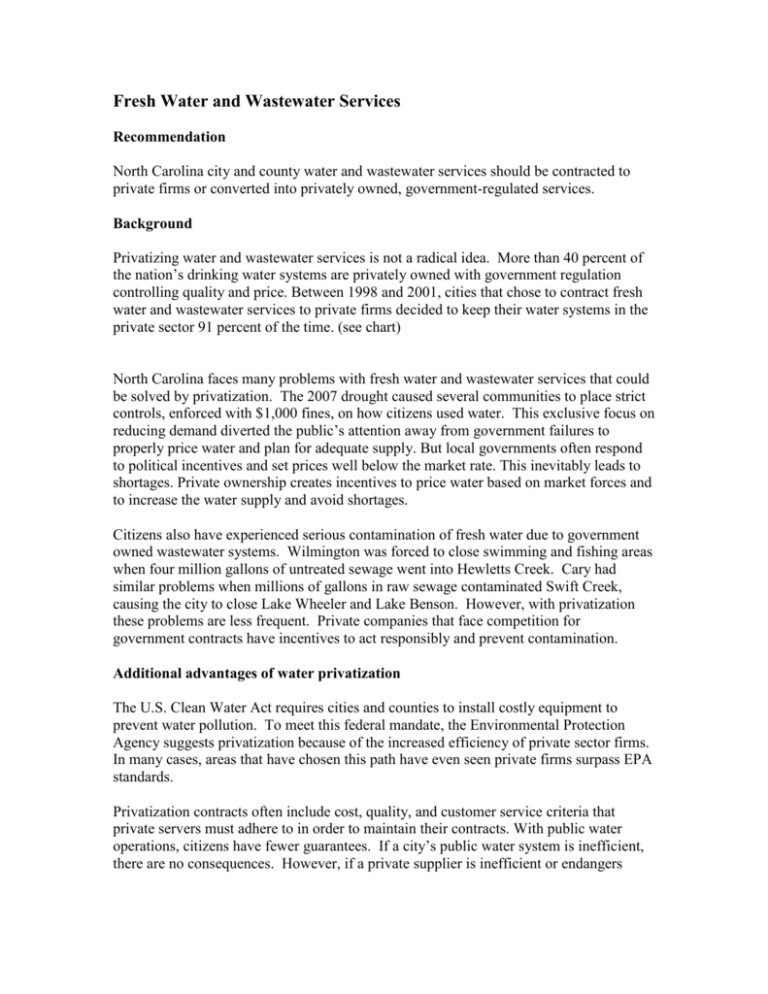
Fresh Water and Wastewater Services Recommendation North Carolina city and county water and wastewater services should be contracted to private firms or converted into privately owned, government-regulated services. Background Privatizing water and wastewater services is not a radical idea. More than 40 percent of the nation’s drinking water systems are privately owned with government regulation controlling quality and price. Between 1998 and 2001, cities that chose to contract fresh water and wastewater services to private firms decided to keep their water systems in the private sector 91 percent of the time. (see chart) North Carolina faces many problems with fresh water and wastewater services that could be solved by privatization. The 2007 drought caused several communities to place strict controls, enforced with $1,000 fines, on how citizens used water. This exclusive focus on reducing demand diverted the public’s attention away from government failures to properly price water and plan for adequate supply. But local governments often respond to political incentives and set prices well below the market rate. This inevitably leads to shortages. Private ownership creates incentives to price water based on market forces and to increase the water supply and avoid shortages. Citizens also have experienced serious contamination of fresh water due to government owned wastewater systems. Wilmington was forced to close swimming and fishing areas when four million gallons of untreated sewage went into Hewletts Creek. Cary had similar problems when millions of gallons in raw sewage contaminated Swift Creek, causing the city to close Lake Wheeler and Lake Benson. However, with privatization these problems are less frequent. Private companies that face competition for government contracts have incentives to act responsibly and prevent contamination. Additional advantages of water privatization The U.S. Clean Water Act requires cities and counties to install costly equipment to prevent water pollution. To meet this federal mandate, the Environmental Protection Agency suggests privatization because of the increased efficiency of private sector firms. In many cases, areas that have chosen this path have even seen private firms surpass EPA standards. Privatization contracts often include cost, quality, and customer service criteria that private servers must adhere to in order to maintain their contracts. With public water operations, citizens have fewer guarantees. If a city’s public water system is inefficient, there are no consequences. However, if a private supplier is inefficient or endangers water quality, they risk losing their contract to a competitor. For this reason, citizens benefit greatly from the privatization of water. Should we trust the private sector? Through government regulation, water safety is achieved in both publicly funded and privately owned water services. The profits of private water companies are contingent on their maintenance of high levels of safety. Many other important goods, such as food and medicine, come from the private sector. People trust that with close government inspection and private companies’ incentive to maintain a positive image, these goods will be safe. Privatized water is no different. With privatized water that must adhere to strict quality regulations, water safety is preserved and can even be improved. How do local officials maintain control and accountability of private providers? Many water and wastewater contracts have successfully been written. Contracts can specify measurable performance standards to monitor private firms. By only providing compensation when these goals are met, local governments are able to maintain a high level of control over the water supply. These contracts can include both safety and quality terms, as well as be flexible to a community’s particular needs. When local governments opt to convert their water operations to a privatized service, they can retain some power through regulation. If the private firm does not adhere to these regulations, it risks being fined or shut down, as well as the potential loss of customers. For these reasons, private water systems have an incentive to follow the regulations and deliver a high quality service at a low price. Analyst: Dr. Michael Sanera Research Director and Local Government Analyst 919-828-3876 • msanera@johnlocke.org



